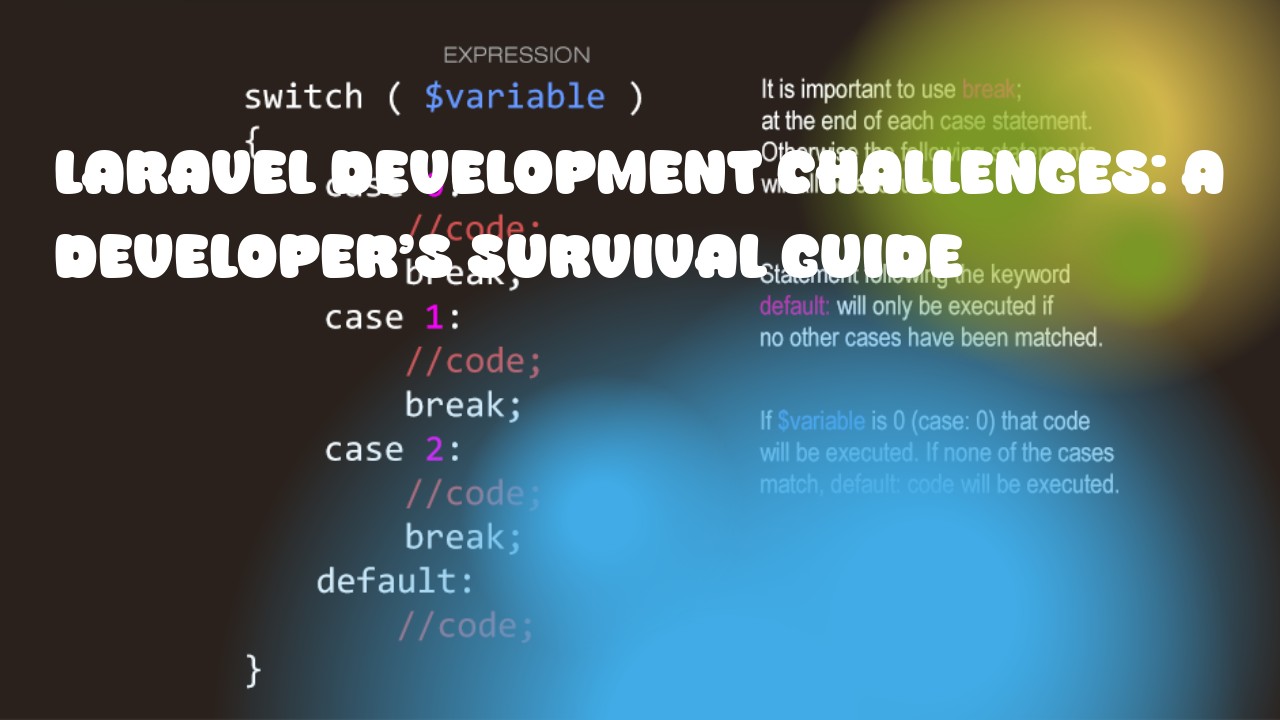Sure, here are some challenges that you might face when developing with Laravel:
-
Form Validation: Laravel provides a built-in validation system that is easy to use and can be customized for your specific needs. However, it can be challenging to remember all the different validation rules and their options.
-
Routing: Laravel's routing system is powerful and flexible, but it can be difficult to manage as your application grows. It can also be confusing to remember what routes are available and how to access them.
-
Authorization: Laravel provides a simple and flexible way to handle user authorization, but it can be challenging to keep track of all the different roles and permissions in your application.
-
Debugging: Laravel has its own debugging tools, but they may not be as powerful or easy to use as other debuggers. It can also be difficult to find information about errors in your application.
-
Database Queries: Laravel provides a powerful query builder that is easy to use and flexible, but it can be challenging to optimize queries for performance. It can also be difficult to remember all the different methods you can use to manipulate data in your database.
-
Testing: Laravel has a built-in testing framework that is easy to use, but it can be challenging to learn how to write effective tests for your application.
-
Deployment: Laravel's deployment process can be complex and requires careful planning and execution. It can also be difficult to find information about best practices for deploying applications on various platforms.
-
Security: Laravel has its own security measures in place, but it may not be enough to protect your application from all types of attacks. It's important to follow best practices for securing your application and stay up-to-date with the latest security vulnerabilities.
Here are some code examples that demonstrate how to use different features of Laravel:
- Form Validation:
$validatedData = $request->validate([
'title' => 'required|string|max:255',
'body' => 'required|string',
]);
- Routing:
Route::get('/posts/{post}', 'PostController@show');
Route::put('/posts/{post}', 'PostController@update');
- Authorization:
$user = Auth::user();
if ($user->can('edit', $post)) {
// User can edit the post
} else {
// User cannot edit the post
}
- Debugging:
dd($variable); // Dumps the variable and ends execution of the script
Log::info('This is an informational message.'); // Writes a log message
- Database Queries:
$posts = Post::where('title', 'like', '%foo%')->get();
$post->update(['title' => 'New Title']);
- Testing:
public function testCreatePost() {
// Create a new post using the factory
$post = factory(App\Post::class)->create();
// Make a GET request to the '/posts' route and assert that it returns a 200 status code
$this->get('/posts')->assertStatus(200);
// Delete the post
$post->delete();
}
- Deployment:
php artisan migrate --force
php artisan db:seed --class=DatabaseSeeder
- Security:
$user = Auth::user();
if (!Hash::check($password, $user->password)) {
// Password does not match the user's password
}

